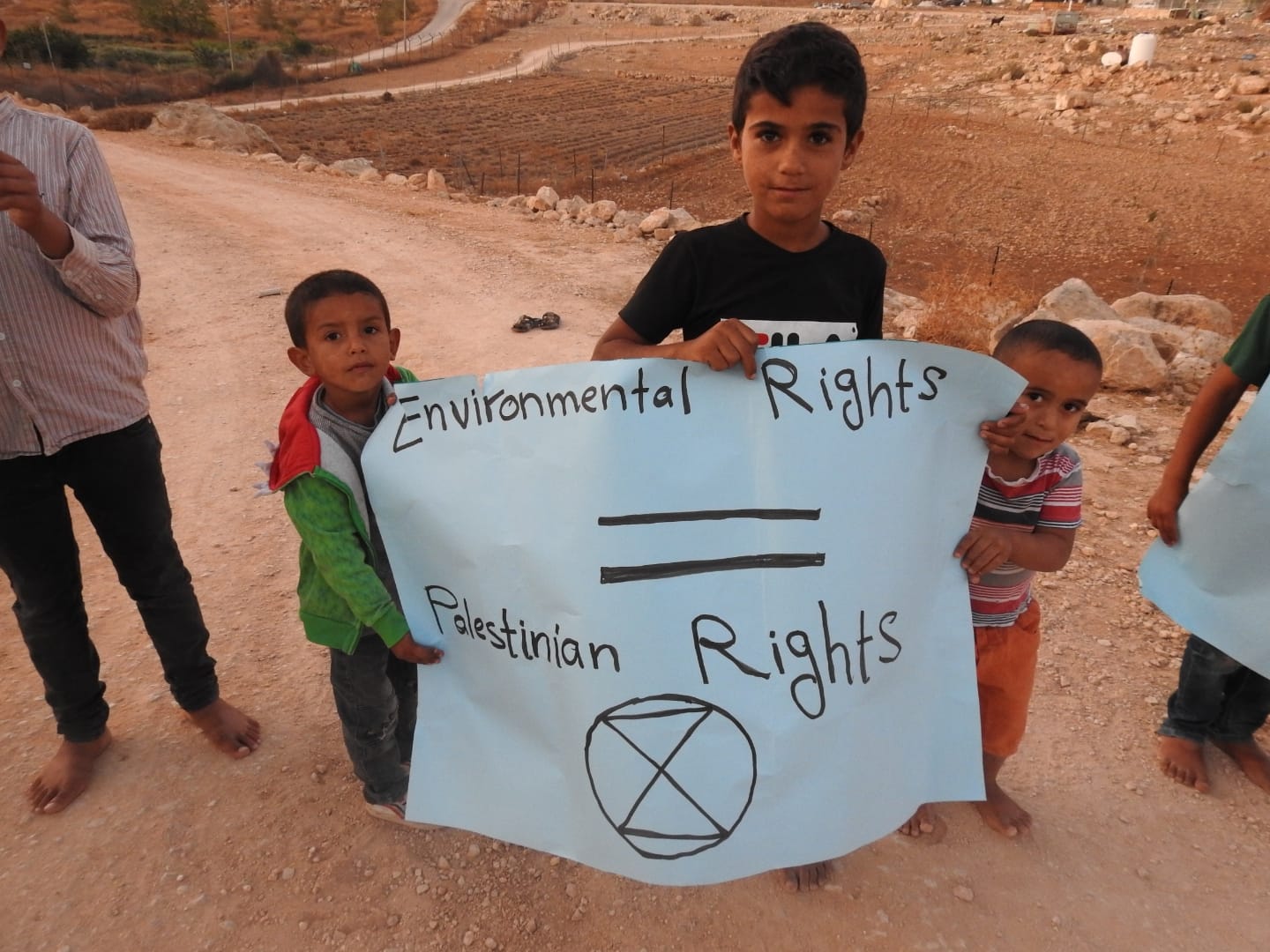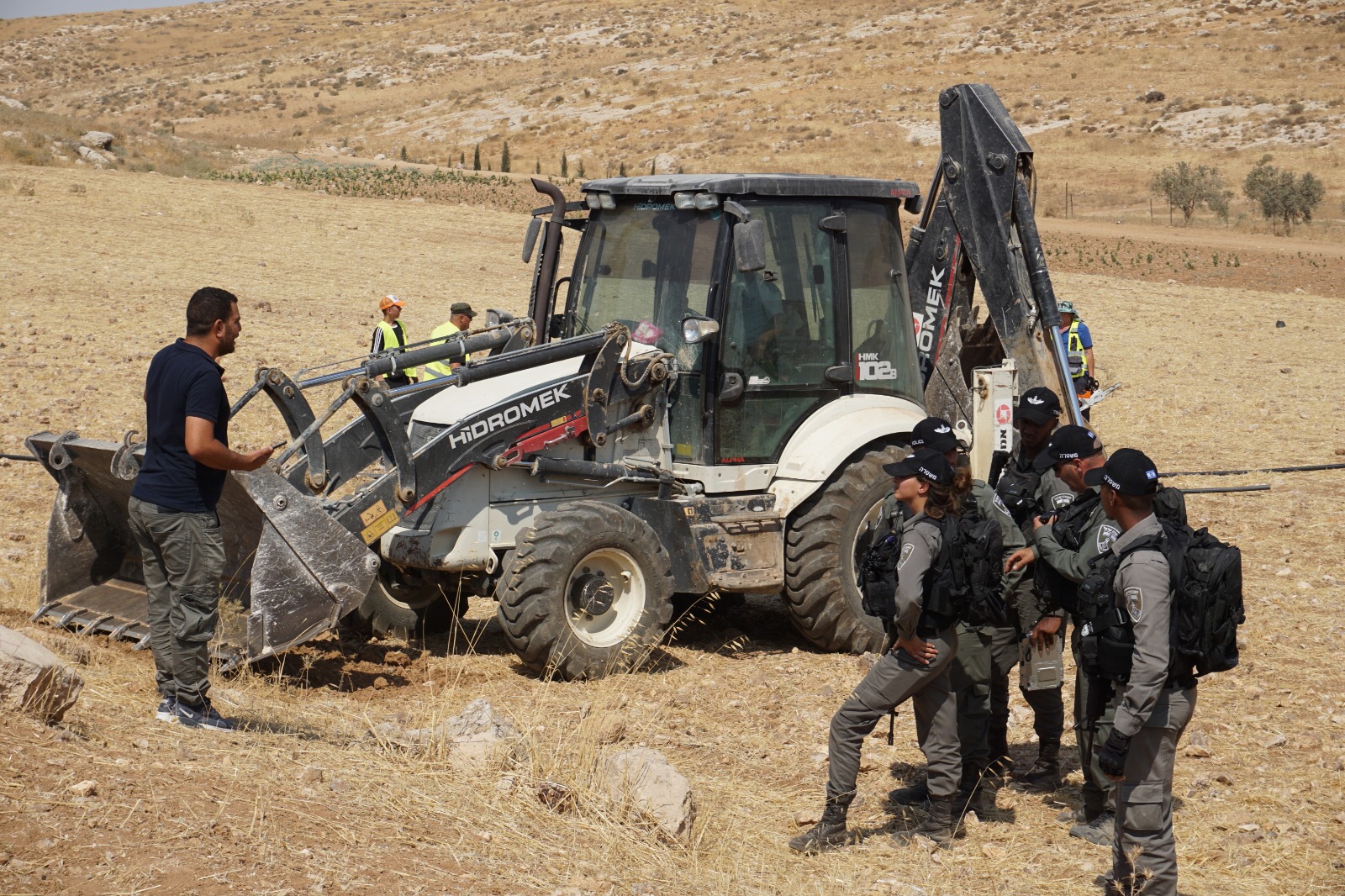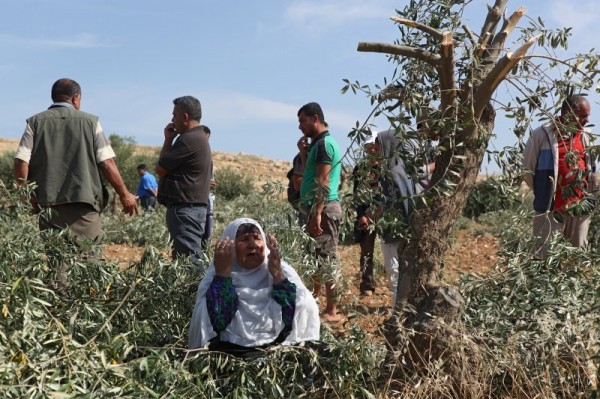Tag: settlements
-
Bedouin kids join global climate strike in Palestine’s first Extinction Rebellion protest
19th October | International Solidarity Movement | Umm al-Khair, South Hebron Hill Bedouin children in the West Bank joined global climate protests yesterday, calling out the Israeli occupation’s role in exacerbating the effects of climate change on Palestinians. Over a dozen protesters from the Bedouin village of Umm al-Khair in the South Hebron Hills, waved…
-
Statement on “postponement” of Regavim London talk due to activist pressure
Yesterday, UK Lawyers for Israel (UKLFI) announced the “postponement” of a talk by extremist pro-settler group Regavim in London due to opposition from British, Israeli, and Palestinian activists. Regavim, which receives funding from the Israeli government, is not only anti-Palestinian and openly racist, but also lobbies for the ethnic cleansing of Palestinians from the West…
-
Call for volunteers: Olive Harvest 2019
August 25 | International Solidarity Movement | Occupied Palestine At a time of regular settler and IOF violence in the West Bank, the International Solidarity Movement (ISM) is issuing an urgent call for volunteers to join us for the 2019 Olive Harvest Campaign at the invitation of Palestinian communities. The olive tree is a national…



